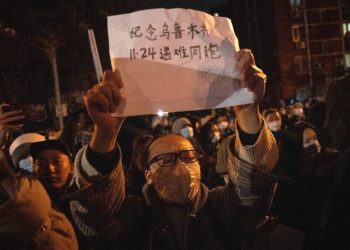Human Lives Human Rights: Tunisia government has used Covid-19 restrictions as new tool to hinder public demonstrations, impeding peaceful assembly and right to free expression.
The restrictions came into effect on 13 January, amid signs of growing intolerance for dissent and one day before planned demonstrations against President Kais Saied on the 11-year anniversary of the ouster of former president Zine El Abidine Ben Ali.
Every January, Tunisians have commemorated Tunisia’s revolution by taking to the streets to voice their grievances.
Rights groups say that it is imperative that the Covid-19 health crisis not be used as a pretext to suppress rights in general or the rights to freedom of expression and peaceful assembly in particular
Tunisian authorities response to demonstrations could lead to unnecessary use of force or arbitrary arrests, a shameful feature of security forces’ policing of many public demonstrations in recent years.
Rights groups call on Tunisian authorities to amend the new rules to bring them in line with Tunisia’s international obligations.
Meanwhile the Tunisia’s government says the new restrictions are intended to combat the spread of Covid-19. They will remain in force for two weeks and may be renewed on the advice of the Health Ministry.
While states may restrict the right to peaceful assembly to protect public health, restrictions must be necessary, proportional, and not imposed in a blanket fashion. Authorities should instead assess each assembly case by case.
Supporters and opponents of Saied have staged public demonstrations since 25 July, which authorities have allowed to proceed largely unhindered.
However, judicial authorities including military courts have increasingly investigated and prosecuted people for publicly criticizing the president.
In January 2021, security services used unlawful force in response to wide-spread protests over socio-economic grievances, including beating protestors and firing tear-gas indiscriminately in residential areas.
Article 21 of the International Covenant on Civil and Political Rights, which Tunisia has ratified, guarantees the right to peaceful assembly.
The United Nations Basic Principles on the Use of Force and Firearms by Law Enforcement Officials provide that law enforcement officials may only use force when strictly necessary.
International community says that President Kais Saied must rescind all restrictions that may implicitly violate human rights and publicly commit to respecting international law and standards.


















